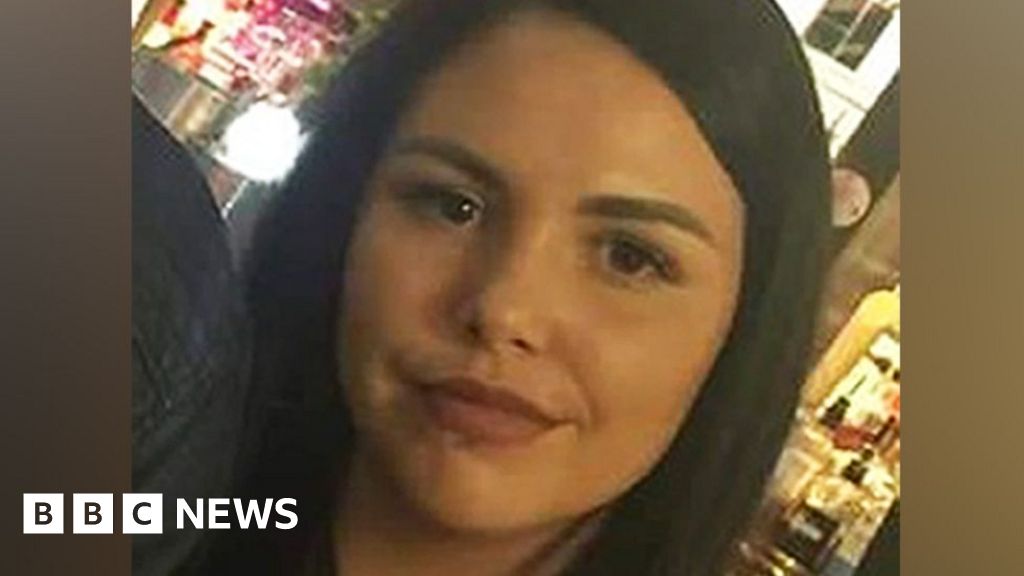 Family handout
Family handout Two people have been arrested on suspicion of manslaughter following the death of a woman believed to have undergone a non-surgical Brazilian butt lift (BBL).
Alice Webb, 33, died at Gloucestershire Royal Hospital in the early hours of Tuesday after falling unwell.
Save Face, a national register of accredited practitioners who offer non-surgical cosmetic treatments, said this was the “first case of a death caused by BBL in the UK”.
The mother-of-five’s partner Dane Knight urged people to think of Ms Webb’s children before speculating about her death.
An investigation, led by Gloucestershire Police’s Major Crime Investigation Team, is ongoing.
The two people who had been arrested have been released on police bail.
Mr Knight wrote an appeal on Facebook, urging people to be “extremely careful” about what they say.
He said: “Want to say a heartfelt thank you to all family and friends that were here for us at our time of need, including all of the kind messages sent to my children and myself.
“There was some very beautiful messages sent by some of your children that formed a start of a smile from the corner of my kids mouth.”
He asked people to think about who is around before speaking about Ms Webb’s death.
“I [don’t want] unnecessary questions raised to the five girls, so be extremely careful on what you say and who’s around.
“Please have these five girls’ feelings at heart,” he added.
BBL is a treatment designed to make buttocks bigger, more rounded or lifted and sees fat or dermal filler injected into the buttocks to change size or shape.
While non-surgical BBLs are not illegal in the UK, last year Wolverhampton City Council barred a company from carrying out the procedure after identifying risks associated with their processes, including blood clots, sepsis, and the potential for the death of body tissues.
Five local authorities in Essex and Glasgow followed suit and have banned certain companies from carrying out liquid BBLs in their area.
‘Crisis waiting to happen’
Save Face’s director Ashton Collins said the organisation had supported 500 women who had suffered complications from the procedure.
Ms Collins said: “Liquid BBL procedures are a crisis waiting to happen. They are advertised on social media as ‘risk-free’, ‘cheaper’ alternatives to the surgical counterpart and that could not be further from the truth.”
Save Face has criticised non-healthcare injectors carrying out liquid BBLs, saying they were often unable to identify and manage the complications of their clients and often misdiagnosed abscesses, and tissue necrosis as bruising.


